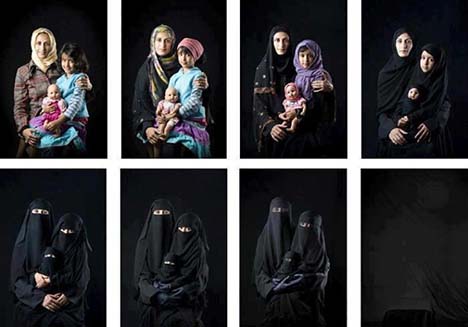
Photography by Boushra al-Moutawakel
from Yemen Times, June 24, 2013
It’s a sensitive subject in this conservative and religiously observant country. Who is talking about safe sex? In a recent online survey carried out by the organization Time to Talk, lasting 11 days—from May 11 to May 22, 2013—the organization asked 300 Yemenis that question, among others. Here are the results of their survey:
More men than women completed the survey, approximately 93 percent men and 7 percent women, all of them holding Yemeni nationality and spread over different age groups, with the largest prevalence among the 19-25 age group (28 percent), and less participation on the part of people in the age of 15-18 (6.12 percent).
The Yemeni respondents cannot be considered to be a representative sample of the Yemeni population because while there are currently as many males resident in Yemen as there are females, the number of men who voluntarily took part in our survey outnumbered the women, with an account for approximately 93 percent of all respondents.
However, almost all age groups present in the Yemeni population are well represented in our group: 19-25 (28.57 percent), 26-30 (19.39 percent), 30-35 (23.24), 36-40 (13.27 percent). The Yemeni age groups least well-presented were young people aged between 15-18 (6.12 percent) and the over 40’s (9.18 percent). Of those who responded to the survey, 54.17 percent are single and 45.83 percent are married.
Opinions and Views
To simplify our analysis, we have established a concise method of calculating agreement or disagreement with some questions offering two choices: “Yesâ€, “No†and some with the three choices of “Yes†“No†and “Neutral.â€
In respondents’ general consideration on Sexual Education, the most significant response was the call for greater sexual education programs (agreement value 92.82 percent).
Also, some 83.33 percent believe that sexual education campaigns and programs can help prevent the phenomenon of early marriage, early pregnancies and sexually transmitted diseases in Yemen.
To analyze whether Yemenis are willing to know more about sexual education and reproductive health, we have included this question in our survey offering three choices: “Yesâ€, “No†and “Neutral.†Surprisingly, 84 percent respondents are willing to know more about sexual education, 10 percent choose to remain neutral and 6 percent answered with “no.â€
Do Yemenis have “the talk�
Twenty-eight percent of respondents’ parents talked to them about sexual issues and contraception and 72 percent of the respondents’ parents never talked to them about contraception or sexual issues. This reflects how most Yemeni parents prefer not to talk about contraception to their children, not even about sexual issues.
However, the subject of sexual education is largely discussed between some of the respondents’ and their friends; 83.33 percent of the respondents’ said they talk about sexual issues and diseases with their friends and only 16.67 percent said they don’t.
In order to study the situation further regarding why sexual education in Yemen is considered a taboo, we have asked the respondents’ and offered three choices. Our results show: 70.41 percent answered with “traditional restrictions,†57 percent said the taboo is due to conservative parents and families and 41 percent said the taboo is due to “religious restrictions.â€
This group sample shows how in Yemen, traditional restrictions and conservative parents are the main reasons why sexual education is a taboo.